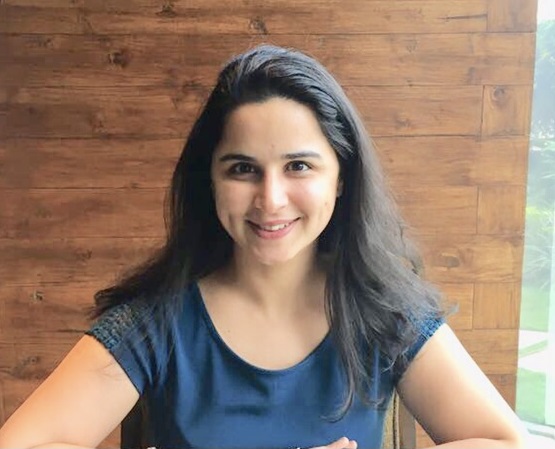At the end of July, Ms Rishika Singh, a PhD candidate at the Teri School of Advanced Studies, received her designation as Certified Nuclear Security Professional (CNSP) from the WINS Academy. Ms Singh received a scholarship to complete the course – without the scholarship, she would have not been able to attend the course since she is pursuing academics.
Ms. Singh is originally a lawyer by training in banking and arbitration law, and she is now writing her PhD thesis on public participation in the establishment of nuclear power plants in India. We sat down with Ms Singh to speak about her experience with the WINS Academy programme and her local context in India.
“With the changing times, it is important to change the perception towards nuclear safety and nuclear security. There is a greater need to lay emphasis on nuclear security globally – and this can be achieved by creating more awareness, information dissemination, specialisation in different areas and certification.”
What was your WINS Academy elective, and why did you choose it?
I chose Communicating with Civil Society, since it was the most complementary to the topic of my Phd thesis. The course provided a great overview of different organisations that are involved, the methodologies that are used, and the kinds of dialogues that can be initiated with the stakeholders.
When I first started reading about nuclear energy before starting my Phd, the popular media projected the people of India to have a negative perception towards the nuclear energy and nuclear power plants as an after effect of Fukushima and Chernobyl. So that’s when I decided to look into this field to bring forward the voices of people living in the neighbouring areas of the nuclear power plants, because a country like India needs nuclear energy to fulfil its demands of base load power and be self-reliant. To go ahead with large-scale nuclear energy, we need a public that has a positive perception and that is involved in decision-making for the establishment of nuclear power plants, because nuclear energy is here to stay.
With the changing times, it is important to change the perception towards nuclear safety and nuclear security. There is a greater need to lay emphasis on nuclear security globally – and this can be achieved by creating more awareness, information dissemination, specialisation in different areas and certification.
What was the most rewarding experience about the WINS Academy programme?
I had previously attended courses with a specialisation on nuclear law, which were designed to lay focus on the legal and policy aspects, whereas WINS course lays an emphasis on all aspects of nuclear energy. Once I registered for the WINS course, it opened so many windows for me as it had a scientific, technical, historical and geopolitical aspect to it and touched upon a lot of unknown areas. From my point of view, I really do feel that it has empowered me into looking at the technical and managerial aspects of nuclear security, rather than just law and policy.
The specialisation that WINS offers is really an add on – Communicating with Civil Society is not a course that I have seen anywhere else. While the IAEA does have a lot of stakeholder webinars, WINS certainly brings forth the best practices, knowledge and a database in the most comprehensive form.
While the course was technical, I did not feel overwhelmed despite not having a science and technology educational background. It’s well designed, comprehensive, elaborate, and at the same time, there was no barrier to me in the way it was drafted. The course also provides insight into the historical aspect and then transitioning into the present-day roles and responsibilities of all the stakeholders. It is certainly attracting greater professional participation due to its comprehensive course structure.
How do you think that becoming a CNSP will help further your career goals?
I believe it will help me when I’m looking for the perfect job that matches my skillset. It’s really specialised and gives you the skillset required in the technical aspects of nuclear safety and security. A few months down the line, the certification will provide my resume the desired expertise in the field of nuclear energy with focus on scientific, technical, legal and policy aspects.
“Increasing your knowledge base, even if for personal development, increases confidence.”
How can advancing gender parity improve your field?
I feel it would be great to have more women on board, especially the ones who have the required skillset and knowledge base, because having equal participation will ensure that there is proper representation and work-life balance are given a priority. Currently, there is not good enough representation of women in the country’s nuclear energy sector. And perhaps including more women will provide a different perspective and viewpoint and empower more women at large.
What advice would you give women who are in or entering your field?
It was very important to constantly engage with people in the same community and field as you – the communication and engagement could be by way of training and being a part of an organisation or association. I feel that engaging with WINS has been a positive experience for me as it opened many windows of learning, and it has empowered me as a lawyer to look at things differently. Increasing your knowledge base, even if for personal development, increases confidence.
